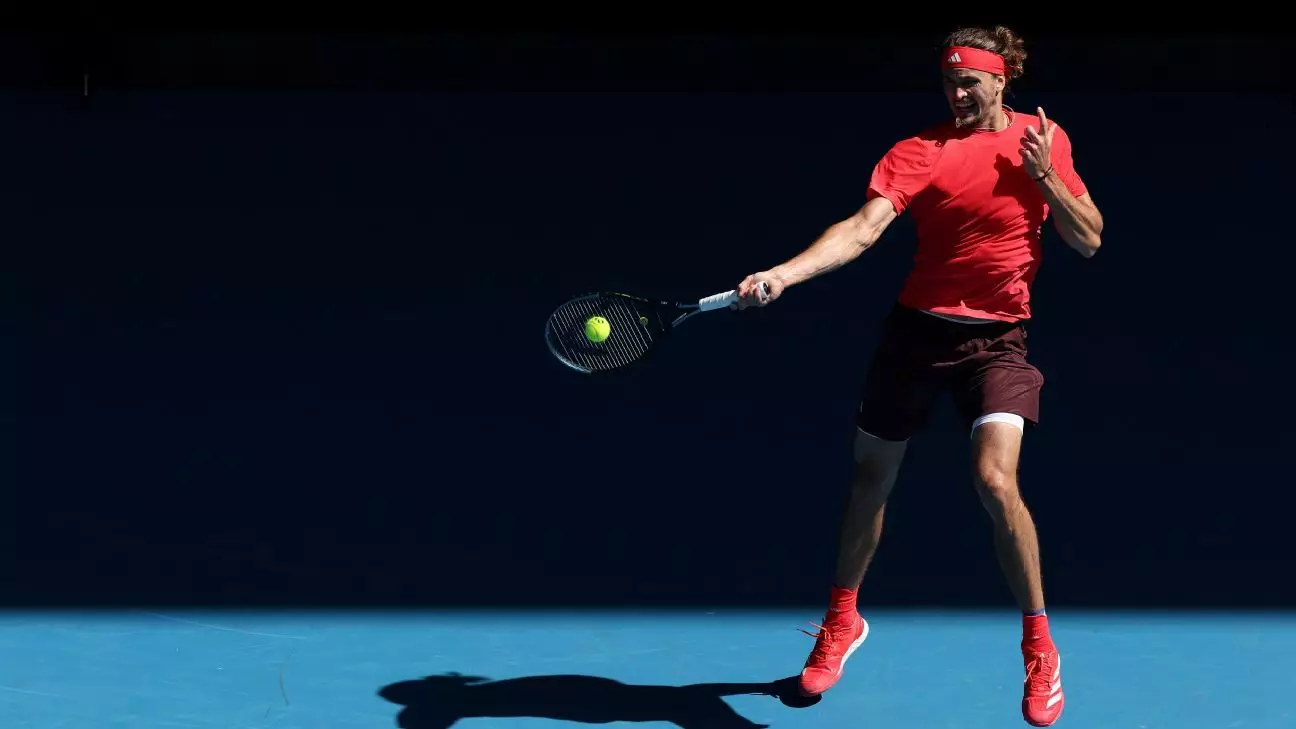In a thrilling contest at the Australian Open, Alexander Zverev triumphed over Tommy Paul, securing a spot in his third semifinal at this prestigious tournament. The match concluded with a 7-6 (1), 7-6 (0), 2-6, 6-1 scoreline. Initially facing significant challenges, Zverev displayed remarkable composure under pressure, particularly in the tiebreaks where he dominated after narrowly managing to save crucial set points. Zverev’s ability to rally from a precarious position showcases not just his athletic prowess, but also his mental fortitude—a vital asset at the highest levels of competition.
With two Grand Slam runner-up finishes to his name, Zverev’s journey through Australian Open tournaments has been characterized by near-misses. This season, he aims to break that pattern and etch his name deeper into the annals of tennis history. Despite his dominant performance against Paul, one cannot ignore the glaring inconsistencies within his play. Zverev himself admitted, “I should have been down two sets to love,” indicating a recognition of both his luck in the first two sets and Paul’s competitive spirit. By acknowledging these shortcomings, Zverev reflects a level of self-awareness that is crucial for a player determined to capture a Grand Slam title.
The semifinal duel was not just a test of skills but also an emotional rollercoaster for Zverev. He encountered distractions that would shake the composure of even the most seasoned players. One notable incident involved a feather inadvertently landing in his field of vision, a moment that led to a warning for cursing—illustrating the heightened pressure and intensity of elite sports. Furthermore, Zverev’s frustrations were exacerbated by audience interference, something that often weighs heavily on players. These moments serve as reminders that tennis is as much a mental challenge as it is physical, and handling such elements is part and parcel of a player’s journey.
A Clash of Generations Awaits
Looking ahead to his next match, Zverev is set to face either Novak Djokovic or Carlos Alcaraz—a similar narrative of generational conflict. Describing it as “probably the highlight match of the whole tournament,” Zverev acknowledged the significance of facing such distinguished opponents. Djokovic, with ten Australian Open titles to his name, and Alcaraz, the young rising star, present unique challenges that could prove both thrilling and daunting for the German player.
As Zverev prepares for this pivotal contest, fans and critics alike are eager to see whether he can translate his recent experiences into a successful campaign. His blend of resilience, adaptability, and recognition of mental hurdles may very well serve as the keys to unlocking the ultimate prize. Zverev’s ability to reflect on his limitations and embrace the journey paints a picture of a player who is not solely chasing victories, but also striving for self-improvement—a commendable pursuit that resonates beyond the tennis court. The Australian Open is more than just a tournament for Zverev; it’s a canvas where he seeks to paint a legacy of his own.

